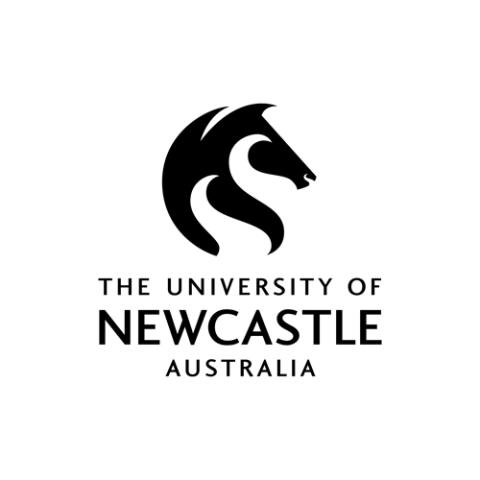
Build healthy resident student communities with restorative practice
The integration of restorative practices within student residential communities can have a transformational impact
We know there is a direct correlation between using blame, shame and punishment and the absence of an understanding of why something has happened. This leaves no room for learning and, therefore, little to no change in behaviour.
Shifting away from traditional punitive measures to a restorative approach that fosters accountability and emphasises the resolution of harm helps rebuild relationships and ultimately strengthens the residential student community as a whole.
You can start to introduce the foundations of restorative practice before students even arrive on campus. Pre-application webinars and pre-arrival communications encourage a sense of connection and start to build capacity within the new community so that, should challenges arise, you can navigate them together.
The following are some of the key (but not all) principles of restorative practice that we use at the University of Newcastle, Australia.
Relationships are central to building healthy communities
Previously, our student residential community functioned quite independently from Student Living (the business unit comprising commercial and student support). Frustration often arose due to a lack of role clarity and miscommunication, which had a negative impact on how our community engaged with the Student Living team.
To overcome this, we deepened our knowledge about the identities and values of each of our residences and worked to align them with Student Living’s values. We dedicated time to clarifying roles and setting expectations with our residents, embedding accountability and support in everything we do.
To start this process within your residential community, meeting with your student leaders to understand what they believe their role is and how that works alongside your team’s role in supporting the student community will provide vital insights. This should identify where there is alignment and shared vision or where there may be gaps, opportunities and challenges. This initial step provides an anchor point for moving forward together.
You can further foster accountability across the student community through:
- Explicit communication between staff and students, with a high level of record-keeping. This could be anything from supporting a phone call with a follow-up email, detailing the actions and expectations of both resident and staff members or ensuring that meetings for residential mentors (paid student leaders who foster engagement and support) have minutes that are circulated and agreed upon.
- Setting clear expectations from the outset of any conversation, meeting or email.
- Providing the support required for a resident to meet the community’s high expectations. An example of this is creating an infographic for residents that explains what the conduct process will look like and how staff will support them through this.
Each voice within the community is valued and everyone must feel heard
Feedback from our residential community indicated that Student Living often made decisions with little to no consultation, leaving student residents feeling unheard, undervalued and uninspired.
This can be addressed by creating time and space for team connection through simple actions such as connection circles and team check-ins to ensure open, transparent and effective communication where appropriate.
- Resource collection: Space and place: rethinking the university campus
- Creating ‘third spaces’ will revolutionise your campus
- Campus design for access and inclusion
Beginning meetings with a connection circle, a non-judgemental and non-hierarchical space focusing on how each person within the community (both staff and student leaders) contributes, helps establish open conversations to solve problems together. At the University of Newcastle, connection circles have been instrumental in producing successful outcomes when navigating students through community concern conversations, because the process encourages residents to reflect on their actions and behaviour, working alongside them to determine appropriate steps towards accountability and community restoration.
We also established a residential consultative group comprising representatives from each residence which meets bi-monthly throughout the academic calendar year to give student residents an opportunity to speak about their issues and explore opportunities within their community.
Engaging in collaborative problem-solving
A key principle of restorative practice is involving the community in problem-solving, particularly regarding issues that directly impact them. Through the residential consultative group and our weekly connection circle with residential mentors, problems can be raised and we use this time together to focus on solutions and ensure that each voice is recognised and heard within them.
An example of this includes how budget is spent to change the physical landscape within the community. Rather than Student Living assuming what the community may want, we used these groups to work through suggestions and issues that residents felt would have the biggest positive social impact within their community. Our efforts have seen outdoor family dining tables constructed, a designated gym space within a residence provided and the removal of trees to increase light into a courtyard.
Integrating restorative processes with student conduct
If you’re considering introducing restorative practice it is important to consult with colleagues who oversee relevant policies such as student conduct and student appeals to ensure that the restorative framework can be used and that your staff are positioned within policy when doing so.
Where harm (physical or emotional or to property) has been caused and where there is an individual or group willing to take accountability, Newcastle’s Student Living offers a restorative process alongside the student conduct process.
Our approach is to acknowledge that behaviours are separate from the individual themselves, in other words, that people can demonstrate behaviours that may not align with their values, and that these actions may cause harm in our communities. This can be anything from intoxicated students leaving a common area untidy, whereby our cleaning staff and other students wanting to use that area the next day are harmed by not being able to utilise the space in the way that it has been intended and additional cleaning resources needing to be allocated, through to an external establishment formally complaining about the behaviour of our students at an event. In this instance, the staff of the establishment were harmed and wanted to see a resolution from the residential community.
Our team ensures that an assessment takes place with a relational lens cast over the process. This means that all harmed people involved have their needs heard and expressed and that we listen to those alleged to have caused harm to understand what was happening for them at that moment and what they have thought about since. This holds space for restoration, in which those who have caused harm are responsible for making it right.
Using the principles of restorative practice can bring about incredibly positive change within student communities. When we intentionally and explicitly seek ways to connect, empower, and foster relationships, we create a thriving campus community capable of withstanding and working through challenging times together.
Gemma Edgar is general manager of Student Living at The University of Newcastle, Australia.
If you would like advice and insight from academics and university staff delivered direct to your inbox each week, sign up for the Campus newsletter.



